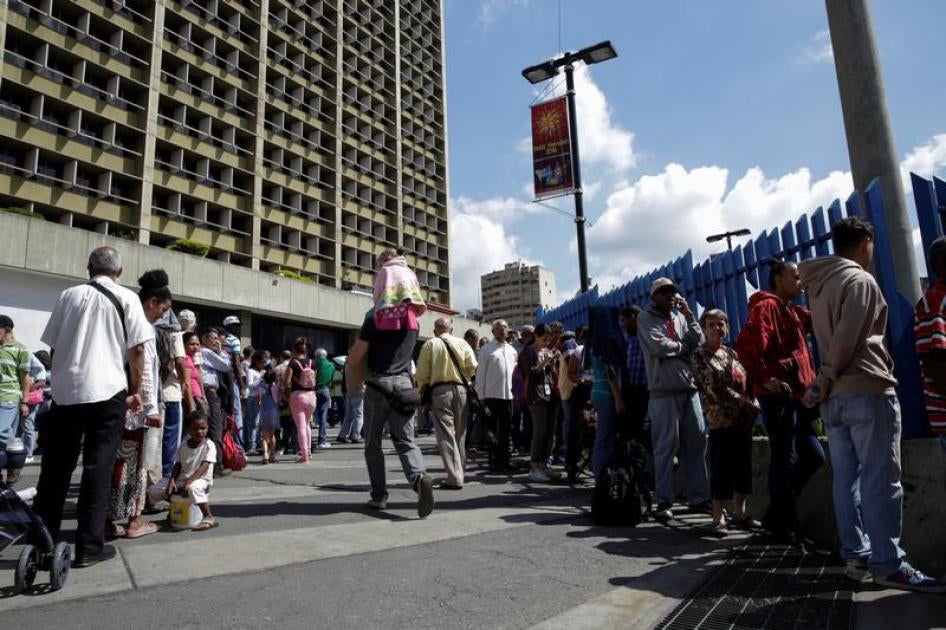The shadow of El Caracazo is looming over Venezuela. In February 1989, popular discontent over economic measures led to outbursts of violence and looting. El Caracazo, as the wave of protests was called, resulted in hundreds of deaths, including extrajudicial executions, and allegations of torture.
Last week, Venezuelans stood in line not only to buy food or medicine – which they are used to, by now – but to exchange 100-bolivar bills. President Nicolás Maduro had ordered the bills out of circulation and given people 72 hours to turn them in to the Central Bank. He said that decommissioning Venezuela’s highest denomination note was necessary to combat mafias – including in Colombia, Brazil, Germany, and Ukraine – that were hoarding them. He closed the border to keep bills held elsewhere from being brought in.
To replace the bills, President Maduro announced plans to introduce several larger notes on December 15. When that didn’t happen, he said that “international sabotage” had delayed their delivery. But the blame-casting did nothing to improve the holiday season for Venezuelans.
Many found the lines and lack of cash unbearable on top of everything else Venezuelans have had to learn to endure. On December 16, violence broke out in Bolivar state and spread quickly. The media reported looting at dozens of stores, with at least three people killed, and more than 300 detained.
On December 17, Maduro announced that the 100-bolivar bill would remain valid until January 2, but the situation remains tense.
In a country where the media reports that 40 percent of the population does not have a bank account, the withdrawal of the 100-bolivar note was largely felt by the poor. The same has been true of other measures by the Maduro government. Military and police raids have led to widespread allegations of abuse against low-income and immigrant communities. Severe shortages of medicines and food have undermined the ability of many Venezuelans, mostly from poor communities that rely on products under government price controls, to provide adequate nutrition to their families or have access to basic health care.
It’s impossible to predict what will happen. But to reduce the very real risk of another Caracazo, leaders of key regional governments should deliver a strong, clear message to Maduro that he is accountable for his government’s policies and that he should focus more on addressing his country’s crises and less on blaming his supposed enemies for creating them.









